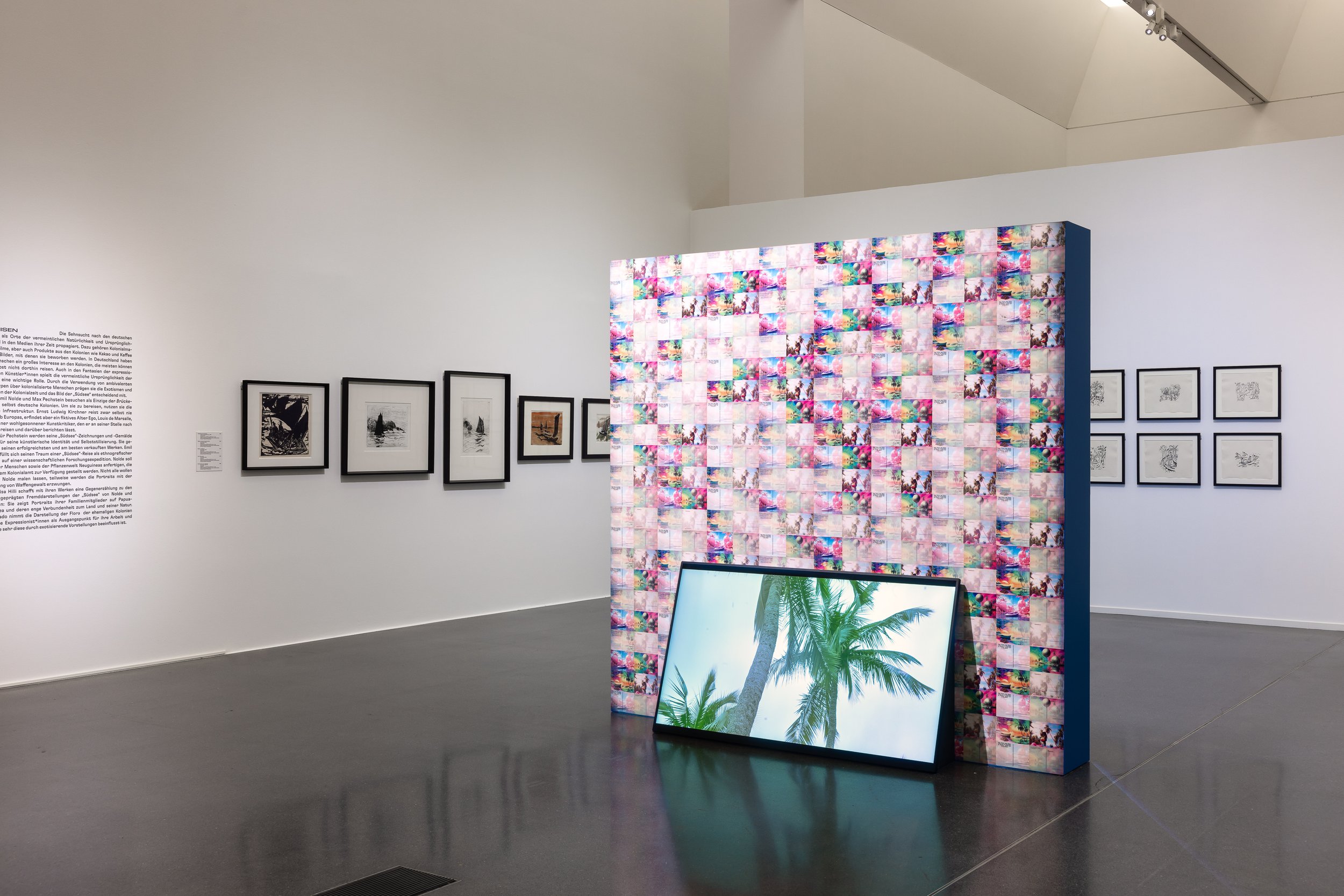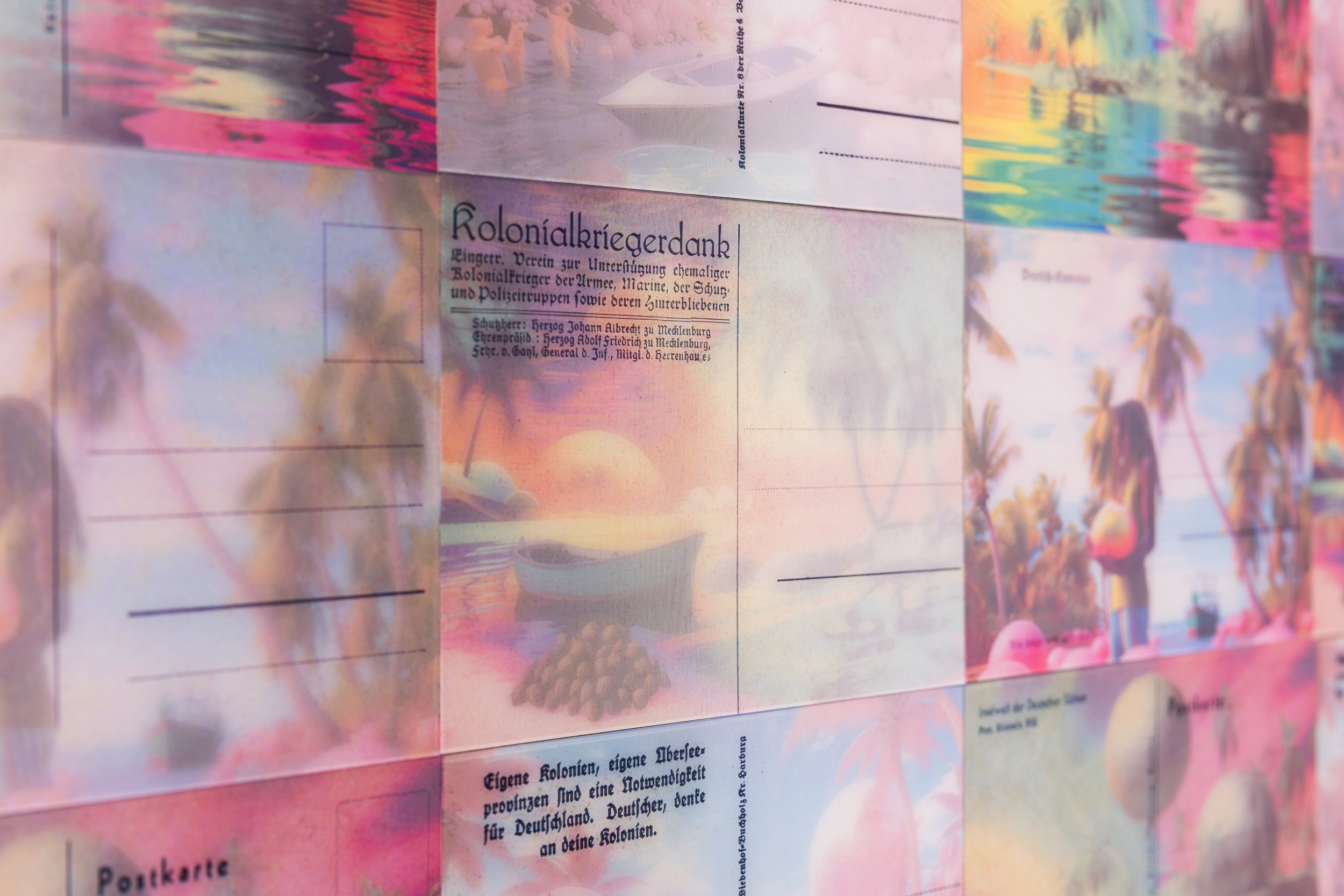
You travelled all this way and all I got was this lousy postcard

Installation view. Photo: Roland Baege.

Installation view. Photo: Roland Baege.




You travelled all this way and all I got was this lousy postcard (2023)
Lenticular prints, 2-channel video.
237 x 231 cm
In 1913, Emil Nolde and his wife Ada Vilstrup took part in an expedition to German New Guinea, sponsored by the German government. The following year, in 1914, Max Pechstein and his wife Lotte journeyed to the Palau islands, in the South Pacific, to escape Europe towards an idealised paradise. During their travels, both Pechstein and Nolde produced a wealth of images depicting local landscapes, flora, fauna, and peoples. Amongst these images, one species is ubiquitous: the coconut tree.
The plant, with its distinctive shape, appears in the quick brushstrokes of Pechsteins’ sketches, or in the bright colours of Nolde’s paintings, its presence meant to communicate to a presumably European viewer that this is a tropical scene — an imagetic narrative strategy reminiscent of the visual language of postcards. Indeed, Nolde and Pechstein’s travels happened at a time known as the Golden Age of Postcards — when cheaper printing methods made these a wildly popular form of communication. Produced by the millions, postcards gave an opportunity to colonial powers to reiterate their perceived right of ownership towards colonies. The coconut tree is there, present in Nolde and Pechstein’s works, as well as in postcards from Surinam, to Nigeria, to the South Pacific. It is still here, in fact; still present in the contemporary postcards of Instagram, TikTok, and Airbnb, invoking scenes of tropical bliss and rest; a promise of paradise.
The installation is split into two sides; on one side, a video depicts a green coconut being opened, by a faceless subject. On the other side, the camera is focused on his face while he rises the machete in the air, and strikes an unknown object. Surrounding the videos on each side, lenticular prints of AI-generated idyllic, surreal tropical beaches mutate into the reverse sides of German postcards of the early 20th century.